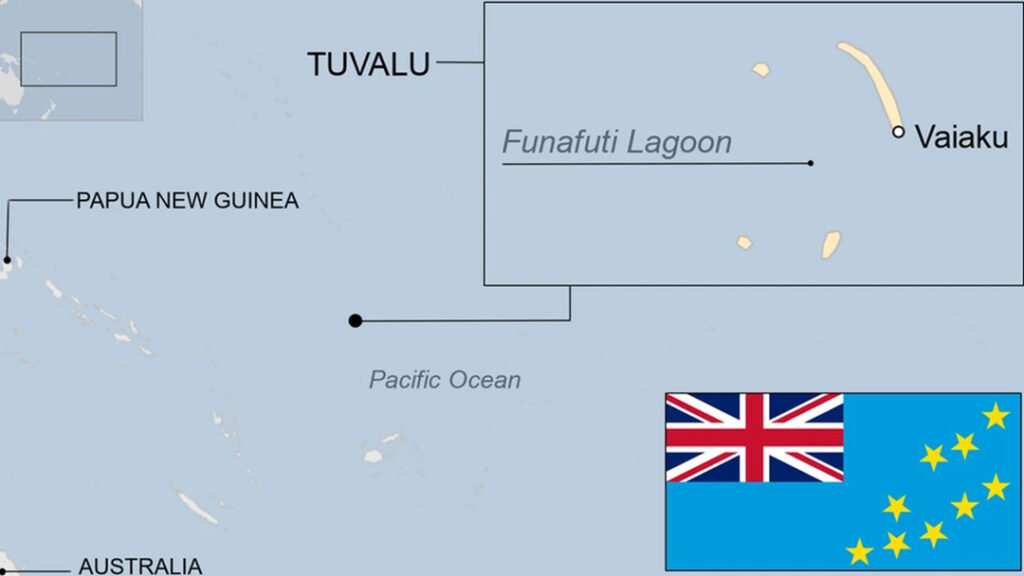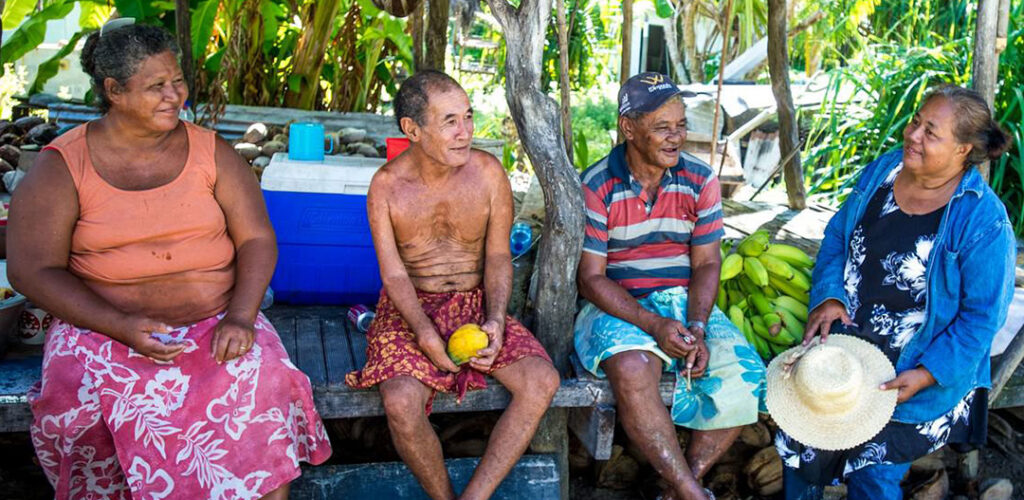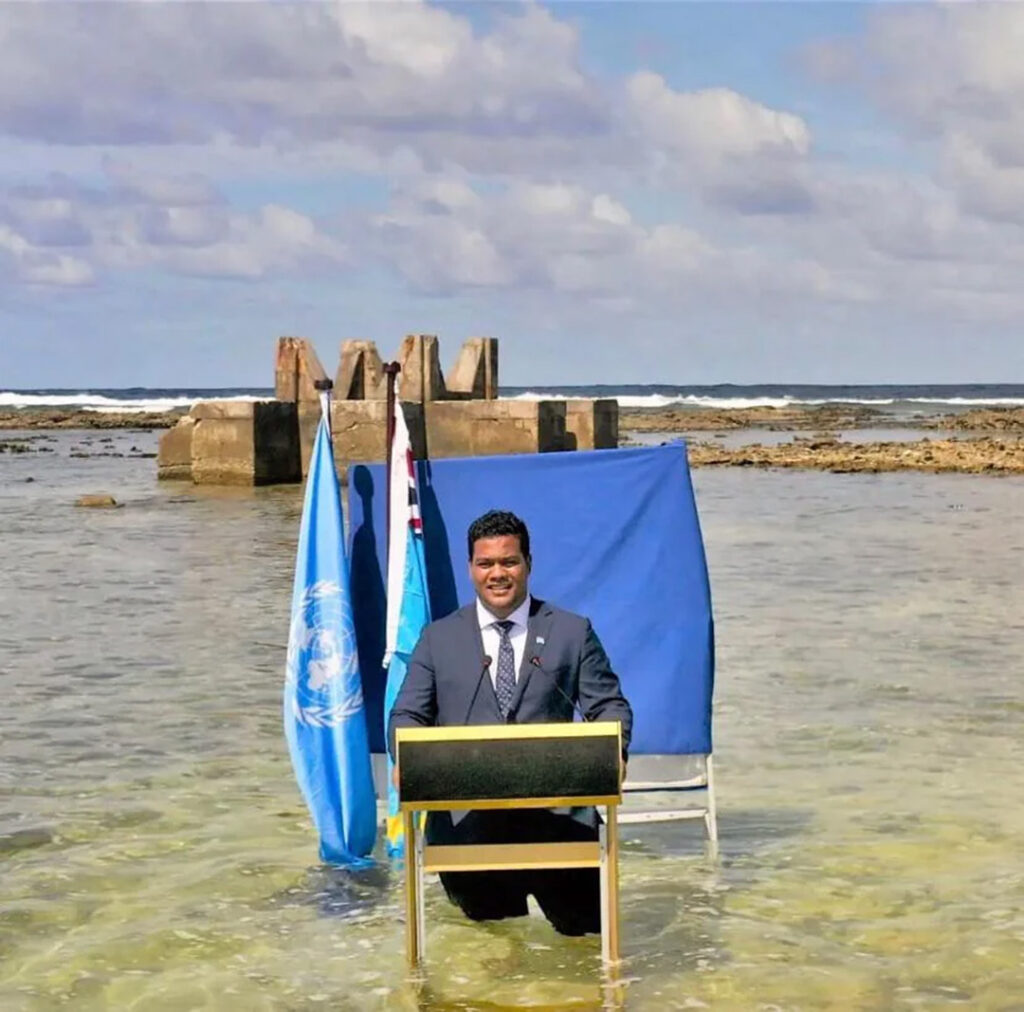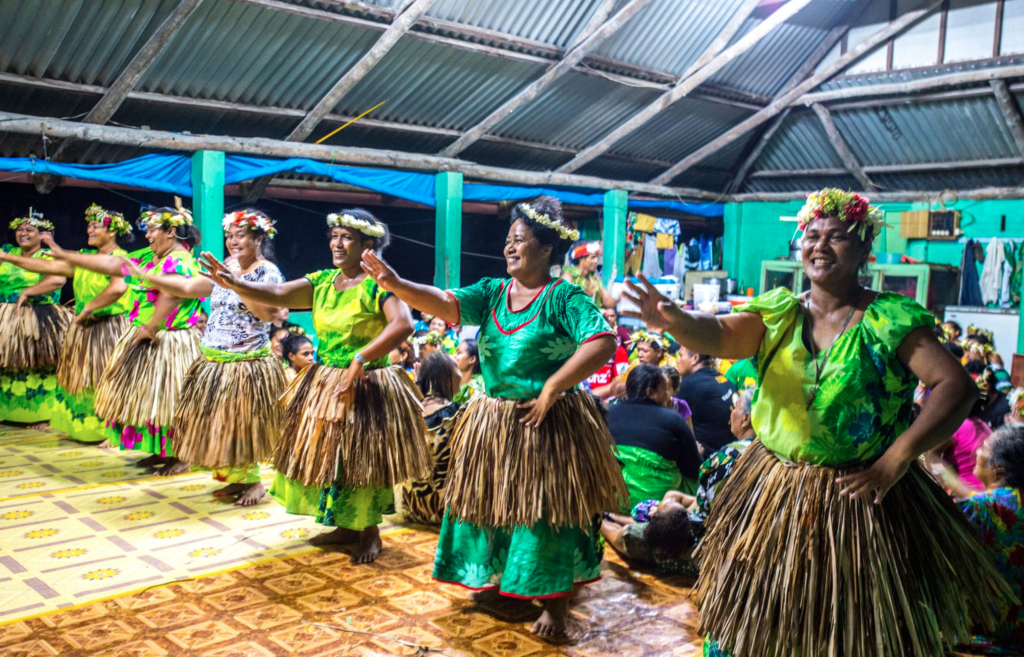The nation most at risk of disappearing due to climate change is moving into the Metaverse. Consisting of only nine atolls and a population of about 11,000, Tuvalu is the smallest archipelago in the Pacific Ocean. This terrestrial paradise, however, faces an existential crisis due to rising sea levels and is now at risk of disappearing. Its vulnerability to the climate crisis has drawn international attention, highlighting the need to protect its cultural identity and the rights of its citizens. The government has decided to use another solution to the problem. In fact, the Metaverse becomes a virtual refuge for Tuvalu.
In response to this crisis and the risk of disappearance, an innovative idea has emerged. Recreating Tuvalu in the Metaverse, has in fact become a project now known as “Digital Nation.” The Metaverse thus becomes a virtual refuge for Tuvalu and a powerful tool to resist and thrive beyond the physical boundaries of the real world. Here, Tuvalu can maintain its culture and identity in a secure digital environment. This virtual refuge offers new opportunities for the Tuvalu community, enabling them to interact and thrive globally.

The Digital Nation Project
The Digital Nation Project is designed to safeguard Tuvalu’s cultural identity and the rights of its citizens, and create a virtual refuge should the nation disappear. This initiative aims to preserve Tuvalu’s historical and cultural heritage from disappearance. In fact, the goal is to create a virtual space where local traditions and practices can remain intact even should the population migrate and the archipelago be submerged. The Metaverse indeed becomes a virtual refuge for Tuvalu.
Advocates and supporters of the project argue that by creating a virtual environment that represents Tuvalu, we can redefine what it means to be a nation. This initiative challenges existing norms. By setting a precedent for other vulnerable nations in the future, it paves the way for a new understanding of sovereignty and peoples’ rights. Tuvalu’s project in the metaverse proposes a virtual refuge to preserve the cultural identity of a threatened nation. Through this initiative, a new concept of sovereignty is explored that could inspire other vulnerable nations.
Rediscovering Sovereignty in the Light of International Law
The Digital Nation project is not just a creative idea; it also has significant legal implications. Traditionally, sovereignty has been tied to a physical territory. The creation of a digital national identity raises fundamental questions about the meaning of statehood and sovereignty under international law. In this context, Tuvalu is positioned as a pioneer in the virtual refuge of the metaverse. Its experience could redefine the concept of nationality, opening up new legal and political scenarios.
The emergence of a digital national identity could redefine legal and political boundaries. In doing so, this would extend beyond the physical territory, requiring new regulations to manage rights and duties in the virtual sphere. This new paradigm raises crucial questions about data protection and citizen privacy. Indeed, digital information could become subject to multiple jurisdictions, complicating legal liability.

Communication and Media Engagement
In order to give visibility to the project, the government of Tuvalu invested in targeted communication strategies, using the media to engage the international community. The announcement of the project during Cop27 was a pivotal moment, attracting global attention and provoking urgent discussions on climate action and mitigation. The Tuvalu project in the metaverse serves as a virtual refuge, drawing attention to issues of sovereignty and climate change. This initiative could stimulate a broader international dialogue on sustainability and the future of vulnerable nations.
This event highlighted Tuvalu’s vulnerability, but also its determination to defend its rights and culture. Through media campaigns, Tuvalu sought to raise awareness of the climate crisis and the importance of preserving cultural identities. Social media, documentaries, and international conferences have been key tools. Through these, the government of Tuvalu has spread the message and created a network of supporters around the world. Indeed, the Metaverse becomes a virtual refuge for Tuvalu.

Resilience of a People
In spite of the challenges faced, the people of Tuvalu have demonstrated extraordinary resilience. Tuvalu’s culture, rich in traditions, music, dance, and handicrafts, is a fundamental element of national identity. Thus, the creation of the Digital Nation means protecting the physical territory and ensuring that traditions and values continue to thrive in a virtual environment. Local communities have been actively involved in the project, contributing ideas and suggestions on how to preserve their culture in the metaverse. As a result, this inclusive approach helped strengthen a sense of belonging and ensured that citizens’ voices were heard and respected.

The Role of the International Community Tuvalu’s struggle for its sovereignty and identity has elicited a significant response from the international community. However, the issue of digital sovereignty raises complex questions. How can nations gain recognition and support in the metaverse? What rights will the citizens of Tuvalu have in a virtual environment? These questions remain open and represent a fertile field for legal and social debate.
A Sustainable Digital Future
Tuvalu’s Digital Nation project is a bold step toward safeguarding cultural identity and citizens’ rights amid a climate crisis. Through innovation, Tuvalu is demonstrating that it is possible to meet the challenges of the future with creativity and determination, offering a positive model for other vulnerable nations. The creation of digital spaces that preserve culture and sovereignty could become a key element in the struggle for social and environmental justice.
The project is an urgent call to action, a testament to human resilience and the ability to adapt to adverse circumstances. In a rapidly changing world, Tuvalu’s story reminds us of the importance of fighting for what is right. And to protect our identities, both in the physical and digital worlds. Indeed, the Metaverse becomes a virtual refuge for Tuvalu. This initiative underscores the importance of addressing global challenges by reaffirming the value of sovereignty in a changing context.

Tuvalu’s challenge is a reminder to us all. As technology advances and the world becomes increasingly interconnected, it is crucial not to forget cultural roots and the importance of preserving the identity of each nation. The metaverse, therefore, should not only be seen as a virtual environment, but as a new frontier for sovereignty and cultural cohesion.
Tuvalu, the endangered nation, which has brought its traditions and values back into the metaverse, tells the story of our time. It tells us of a future in which national identity and human rights are respected, regardless of the challenges of our time. Finally, the Metaverse becomes a virtual refuge for Tuvalu, becoming a powerful tool to resist and thrive beyond the physical limits of the real world.





